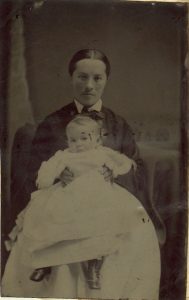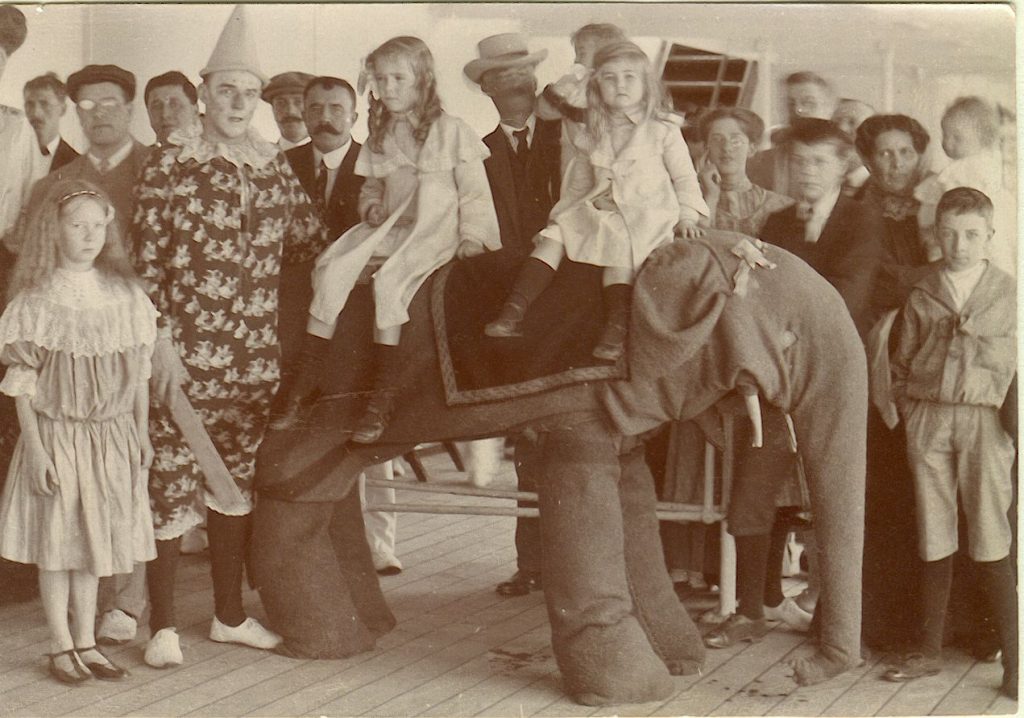Ask your Grandparents – What a Strange Thing is Memory
We are fortunate to have a few memories and reminiscences that have been passed down through our families and provide a fascinating historical record of the lives and times that our ancestors experienced, though there must also have been many missed opportunities and maybe lost writings. We left it too late with my own father, despite some half-hearted efforts to get him to record or write about his earlier life, so his children and grandchildren have only vague notions of his unusual upbringing in Africa. I have come to believe that it is easier for a grandchild, with that slightly greater distance, to elicit those intriguing life stories, be it all in one long telling, or in snippets compiled over time to build up a fuller story, or to trigger a desire to commit that story to print. Maybe the modern way is to capture brief audio recordings or videos on an iPhone, rather than a traditional “memoire”. What might seem mundane today may be a revelation in fifty years time.
I take the liberty of digressing from the Gibbs family history to illustrate a fabulous example from my mother’s family, which takes us all the way back to the American Civil War, building railroads across Texas, missionaries trekking up Africa, birth in Nice, being told stories by Rudyard Kipling and so on … In 1957 Lucy Lindley Mitchell Molteno, aged 83, wrote “… I have also remembered my granddaughter Margaret (my mother) asking me to write something about my early life as she said, ‘we know so little about when you were young’. So now I begin…”
Some years ago my mother showed me these hand written notes, which I typed up, and converted to a document on my computer and shared with family. Later cousin Robert Molteno started a website on “The Molteno Family – A History of the Molteno and related families” with the aim of writing a book on the subject, and I sent him a copy of great-gran’s story. Like the original Molteno ancestor who left his village outside Milan around 1780 to establish himself as a print seller on Pall Mall in London, Robert has a publishing background and did a meticulous job prefacing, laying out, adding photos and references to bring the story to life as “What a Strange Thing is Memory by Lucy Lindley Mitchell Molteno“.
A generation later, in 1986, my grandmother Carol, Lucy’s daughter, also wrote up her “Recollections“, keeping up a great tradition, describing life growing up in a prominent family in the Cape, her travels around Europe and America, and her tribulations. Carol’s family photo albums were eventually divided amongst my mother and her two brothers on three different continents. Fortuitously 20 years ago I and a cousin scanned the albums that we had access to yielding a rich source of old photos that we shared, helping to populate both these recollections.
Robert’s many interests and deep involvement in his local south London community took priority over the book’s progress, and tragically Robert collapsed while out on his early morning street walk last week. Will the Molteno story, from Italian migrant to prime minister of the Cape Province of South Africa, remain untold?

Lucy’s story starts in Nice on the Cote d’Azure in 1875, where her American parents were “recuperating”, as captured in this very early photo of her with her French “wet nurse”. She was educated by governesses and tutors, and hours reading poetry and Greek and Roman mythology with her father.
After her father’s death when she was 18, her mother took Lucy and her two sisters travelling abroad, throughout Europe, coming to South Africa after three years of wandering – her mother was the daughter of the missionary Daniel Lindley and she had been born in South Africa. There Lucy met her future husband, John Charles Molteno, the son of the Cape’s first Prime Minister (though he had to pursue her back to America to win her over).
Lucy’ memoirs give an interesting perspective of upper class life in Cape Town from immediately before the Boer War and onwards and of prominent people in the Cape. She remained there until she died aged 95 in 1967, having been widowed nearly half a century earlier. A fearless woman, she took up mineral prospecting later in life, traveling into remote wilderness well into her 80s.
Of equal historical interest are her accounts of family tales that her father recounted to her …
In the early days of the American Revolution her father's greatgrandfather and his only brother, coming or going from school, thought they would watch a battle which was going on in Charleston They were hiding behind a wall or pile of some kind, when the brother looked over and was hit and killed ... ... my father told me he had a young slave to carry his books for him to school. But my grandmother did not like having slaves, and to please her, my grandfather with their children moved to New York... ... the Governor of a Northern State asked Lucy's great-grandfather (Timothy Green) to escort his daughter who was in the South up by sea to New York. She had either been recently married ... and was carrying with her much silver and valuables. The ship was never heard of again. But some years later a sailor in hospital confessed that he was one of the crew on this vessel, and that the crew had mutinied. They shot my forbearer. But Theodosia, the Governor’s daughter, was so beautiful, they could not bear to shoot her and instead made her walk the plank into the sea...
Lucy made friends with a fellow young American mother in South Africa, the wife of Rudyard Kipling. He used to tell lovely stories to her daughters Carol (my grandmother) and Lucy, who were photographed sitting on an elephant on the boat to New York – Rudyard Kipling behind with moustache.


Pingback:The American Connection – Gibbs Family Tree